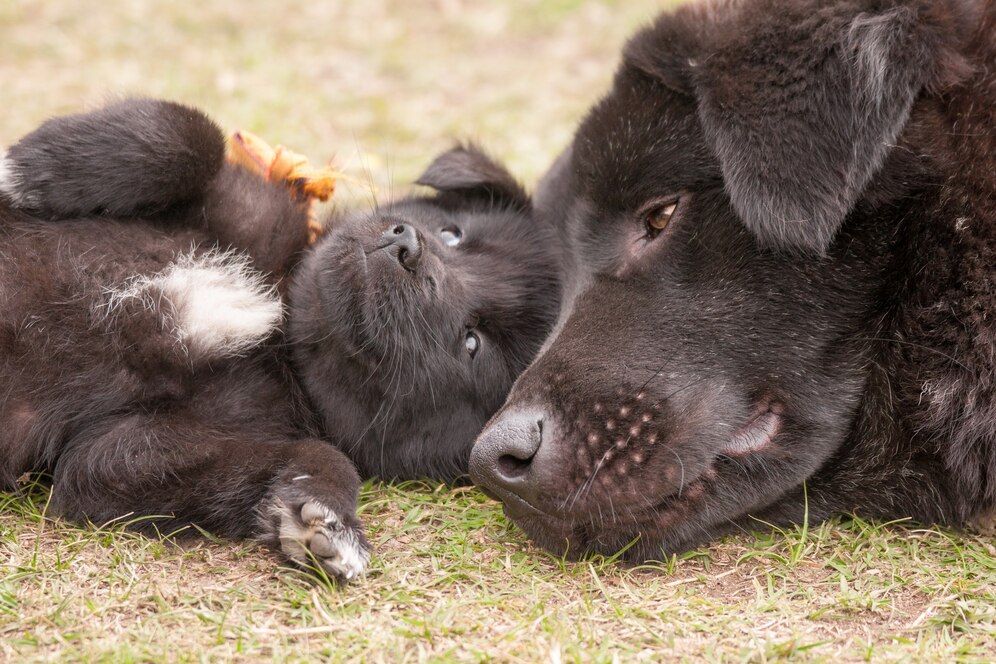Table of Contents
The Unique Challenges and Triumphs of Animals with Down Syndrome
Animals with Down Syndrome face a myriad of challenges that set them apart from their peers. While their condition may bring difficulties, it also provides opportunities for remarkable triumphs. Let’s delve into the fascinating world of animals with Down Syndrome and discover the unique experiences they encounter along their journey.
The Physical Characteristics of Animals with Down Syndrome
Animals with Down Syndrome exhibit distinct physical traits that distinguish them from their unaffected counterparts. These traits, such as flattened facial features and almond-shaped eyes, are reminiscent of those seen in humans with Down Syndrome. By examining these physical characteristics, researchers gain insight into the underlying genetic and developmental aspects that contribute to this condition.
Understanding how these physical features affect animals’ lives is crucial for ensuring their well-being. For instance, certain facial structures may impact their ability to eat or breathe properly, requiring specialized care and accommodations. By studying and addressing these physical challenges, we can provide a better quality of life for animals with Down Syndrome.
Additionally, animals with Down Syndrome often have a smaller stature compared to their peers. This can lead to difficulties in mobility and coordination. However, with appropriate support and adaptations, these animals can still lead fulfilling lives. Whether it’s through assistive devices or customized environments, providing the necessary tools for their physical well-being is an important aspect of caring for animals with Down Syndrome.
Cognitive Abilities and Emotional Intelligence in Animals with Down Syndrome
Beyond their physical characteristics, animals with Down Syndrome exhibit unique cognitive abilities and emotional intelligence. Despite facing intellectual challenges, these remarkable creatures often display a heightened sense of empathy and attachment to their human caregivers.
Research suggests that animals with Down Syndrome possess an extraordinary capacity for forming deep emotional connections, demonstrating loyalty and affection. Their cognitive abilities may also surprise us, as they showcase problem-solving skills and adaptability that defy expectations. Unraveling the intricate workings of their minds allows us to appreciate the astonishing depth of their emotional and cognitive capacities.
Furthermore, animals with Down Syndrome have been observed to possess a keen sense of social awareness. They are often highly attuned to nonverbal cues and can read human emotions with remarkable accuracy. This heightened emotional intelligence allows them to provide comfort and support to their human counterparts in ways that are truly extraordinary. By recognizing and fostering these unique qualities, we can create enriching environments that promote the well-being of animals with Down Syndrome.
Challenges in Healthcare and Rehabilitation for Animals with Down Syndrome
Providing optimal healthcare and rehabilitation for animals with Down Syndrome can be a complex task. Veterinarians and animal care professionals face unique challenges in understanding and addressing their specific needs. From diagnosing their condition to developing tailored treatment plans, healthcare providers must navigate uncharted territory in the animal kingdom.
One of the primary challenges in healthcare for animals with Down Syndrome is the limited availability of specialized resources. Unlike humans, who have well-established medical protocols and support systems, animals with Down Syndrome often require individualized care plans. This necessitates collaboration between veterinarians, researchers, and animal welfare organizations to develop comprehensive guidelines and treatment approaches.
Rehabilitation programs tailored to animals with Down Syndrome aim to enhance their physical, cognitive, and emotional well-being. These programs often involve innovative techniques and therapies, adapted from those used for humans with similar conditions. For example, physical therapy exercises can help improve muscle strength and coordination, while cognitive stimulation activities can enhance problem-solving skills. By continuously evolving our understanding and approaches to healthcare and rehabilitation, we can provide a brighter future for animals with Down Syndrome.
Advocating for Inclusion and Equal Opportunities
Animals with Down Syndrome deserve equal opportunities, inclusion, and acceptance within the animal kingdom and in society as a whole. In a world that often dismisses their capabilities, it is essential for us to advocate for their rights and promote awareness of their unique needs.
Advocacy efforts can take various forms, from educating the public about Down Syndrome in animals to supporting organizations that specialize in the care and well-being of these animals. By raising awareness and challenging misconceptions, we can pave the way for a more inclusive society where animals with Down Syndrome are valued and given the opportunities they deserve.
In conclusion, exploring the fascinating world of animals with Down Syndrome reveals a rich tapestry of physical characteristics, cognitive abilities, and emotional intelligence. While they may face unique challenges, these remarkable creatures also possess immense potential for triumph and connection. By understanding their needs and advocating for their rights, we can ensure that animals with Down Syndrome are embraced and celebrated for the extraordinary beings they are.


